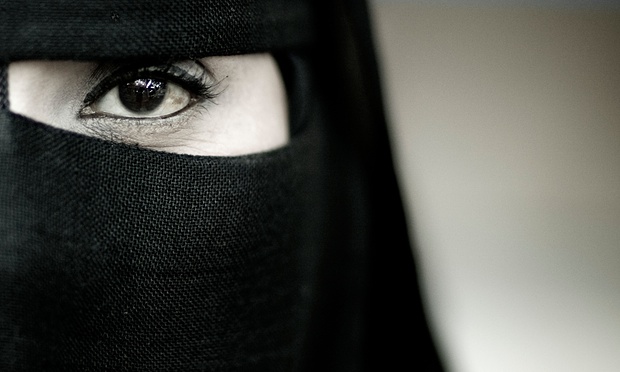But when it comes to women’s rights in Egypt, pitting traditional Islamists against western-orientated secularists is misleading. The Americanisation and Islamisation of the country’s culture have gone hand in hand since the “open door” policy of the 70s, which saw the progressive, secular nationalism of the Nasser eradefeated. Subsequently women’s fashion reflected this curious mixture of western commercialism and religious fundamentalism: women in Egypt covered their heads to comply with the Muslim Brotherhood, and wore cropped tops that bared their belly-buttons in submission to the free market.
In Egypt we have an ancient precedent for this oppression of the female sex. Isis, our ancient goddess of knowledge, was defeated by Ra, the patriarchal sun god. From then on, Isis became something akin to the devil, a process which mirrored the way that Eve became the sinner in the Old Testament. And thus women were turned into bodies without brains, whose shameful heads full of knowledge must be hidden away. Today we still live with the aftermath of the goddess Isis’s defeat: the feminisation of poverty, rising levels of rape and sexual harassment, forced marriages and human trafficking.
We are told that the leaders of the free world are currently engaged in attempting to defeat another Isis, the unfortunately named, barbaric terrorist group Islamic State. But we should remember that concentrations of power – whatever their form or location – can feed off each other even if they might seem opposed on the surface.
From the pope to the grand imam of the Al-Azhar mosque, from the chief rabbi to the Dalai Lama, religious leaders all join their political leaders in shedding crocodile tears over the suffering of my people while doing little in practice to challenge injustice and inequality. Beautiful words like development, democracy, humanity, cooperation and friendship become a cover for neocolonialism. This neocolonialism in turn fans the flames of religious fanaticism and bolsters the cause of Muslim extremists.
Neocolonialism means that we in the developing world continue to be dependent on foreign development aid, and that we import basic food products from foreign corporations rather than establish our own industries. Ordinary people struggle to pay increasing prices not only for basic food such as bread, but also for the items they are persuaded they need by commercial and religious authorities, such as cosmetics and veils for women.
In the Arab world you can speak freely about poverty and economic inequality, but relating it to the capitalist system is still a taboo, as is the word “class”, which evokes the red devil of communism. It threatens the security of authorities, both on earth and in heaven, since God created the poor and the rich.
The veiling and oppression of women lies at the core of the split between the spiritual and the material, between the economic and the sexual, between the political and the religious and between the global and the local.
Our time is full of tragedies caused by the worship of power and wealth. It is a tragedy that a poor working man today will spend all his life’s savings in order to travel to Saudi Arabia to stone the devil or kiss the Ka’bah. It is a tragedy that women professors in parts of the Arab world have to hide their faces under the niqab while teaching.
And it is a tragedy that while world leaders will warn of the increasing misery of immigrants, the threat of climate change and the increasing inequality between the rich and the poor, nothing will change because they refuse to examine the roots of their problems: the patriarchal class system which they defend with all their physical and metaphysical powers.
When Eve’s face is no longer hidden, it will challenge all the established powers – be they religious authorities, dictators or free-market fundamentalists.


